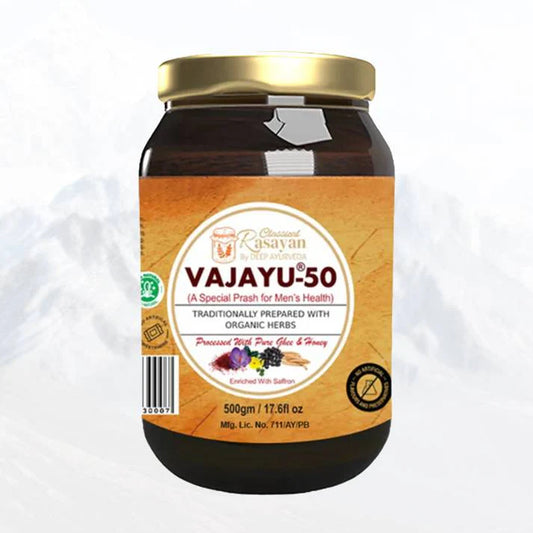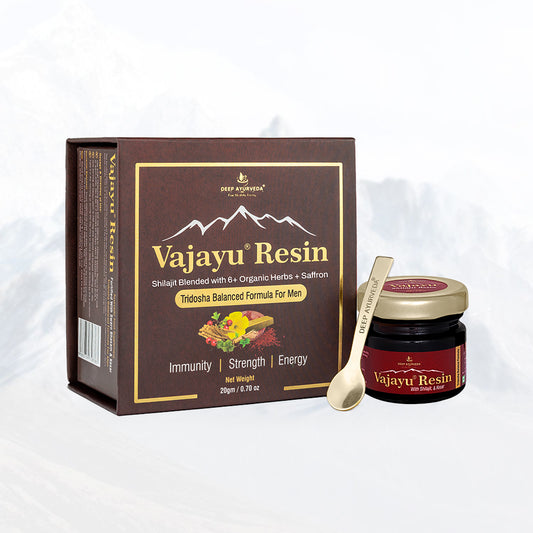In today’s fast-paced world, stress has quietly become a constant companion — creeping into our routines, emotions, and even our physical health. From work deadlines and family responsibilities to digital overload, the triggers are endless. But while modern life pushes us into a cycle of mental fatigue, nature offers a timeless way back to balance.
This article explores natural remedies for stress — blending Ayurvedic wisdom with modern holistic insights to help calm your mind, nourish your body, and uplift your spirit.
Understanding Stress in an Ayurvedic Way

Ayurveda, the ancient science of life, sees stress not merely as a mental state but as a disturbance in the body’s doshic balance — particularly the Vata dosha.
According to Charaka Samhita, excessive mental exertion, lack of sleep, irregular meals, and overthinking aggravate Vata, leading to restlessness, anxiety, and fatigue. When Pitta also joins the imbalance, irritability, anger, and frustration follow.
Hence, Ayurveda teaches that calming Vata and soothing Pitta through mindful routines, nourishing diets, and rejuvenating herbs is the key to managing stress naturally.
1. Begin the Day with a Grounding Routine (Dinacharya)
The way you start your morning defines your mental tone for the entire day. A stable, intentional morning routine is the first step in harmonizing the nervous system.
Simple practices to include:
-
Wake up early (Brahma Muhurta) — around 5:30–6:00 AM, before the mind gets crowded with thoughts.
-
Oil pulling (Gandusha) with sesame or coconut oil to remove toxins.
-
Self-massage (Abhyanga) using warm sesame or almond oil before bath. It deeply nourishes the nervous system and pacifies Vata.
-
Meditation or Pranayama: 10 minutes of deep breathing (Anulom Vilom or Bhramari) brings immediate calmness.
-
Warm herbal drink: Sip a cup of ginger-tulsi tea or warm water with lemon and honey to awaken digestion and clarity.
This routine anchors your mind, balances your energy, and makes you more resilient to daily stress.
2. Herbal Remedies for Stress and Anxiety

Ayurveda offers a treasury of adaptogenic herbs — natural substances that help your body adapt to emotional or physical stress and maintain equilibrium.
Ashwagandha (Withania somnifera)
The most renowned Ayurvedic adaptogen, Ashwagandha calms the nervous system, enhances energy, and improves sleep quality. It regulates cortisol (the stress hormone), helping you feel steady even during demanding times.
How to take: 1–2 grams of powder or standardized capsules daily with warm milk or water.
Brahmi (Bacopa monnieri)
A rejuvenating herb for the brain, Brahmi improves concentration, memory, and mental clarity. It’s ideal for people who experience overthinking, anxiety, or mental exhaustion.
Tip: Brahmi tea or oil massage on the scalp before sleep helps calm the mind.
Shankhpushpi (Convolvulus pluricaulis)
Known as a natural “intellect promoter,” Shankhpushpi relieves mental fatigue and insomnia. When combined with Brahmi, it forms a powerful tonic for emotional stability.
Jatamansi (Nardostachys jatamansi)
This root acts as a natural sedative and is excellent for calming restlessness, irritability, or excessive Vata.
Tulsi (Holy Basil)
Beyond being sacred, Tulsi is an adaptogen that reduces oxidative stress, detoxifies the body, and supports mental clarity. Tulsi tea twice a day works wonders for emotional grounding.
These herbs can be taken as powders, teas, or Ayurvedic formulations under expert guidance.
3. Mindful Diet to Calm the Nervous System
Your food can either fuel or fight stress. According to Ayurveda, a diet that is warm, moist, mildly spiced, and nourishing stabilizes the nervous system and supports emotional peace.
Foods that Reduce Stress:
-
Warm cooked grains: Oats, wheat, or rice cooked with ghee and mild spices like cardamom or cinnamon.
-
Protein sources: Moong dal, toor dal, or milk-based preparations for nourishment.
-
Healthy fats: Ghee, coconut oil, and sesame oil calm the brain and support hormone balance.
-
Fruits: Bananas, dates, figs, and stewed apples provide natural sweetness that pacifies Vata.
-
Herbal teas: Chamomile, fennel, or tulsi infusions soothe the nerves.
Avoid:
-
Caffeine, alcohol, cold beverages, fried and processed foods.
-
Skipping meals or eating late at night — it aggravates Vata and weakens Agni (digestive fire).
Ayurvedic Tip: Eat in a calm environment. Avoid screens or talking about stressful topics while eating — it enhances prana (life force) absorption.
4. Yoga & Pranayama: Natural Tools for Mental Calmness

The mind and body are one — and movement is medicine. Yoga and breathwork are natural antidotes to stress, as they help release emotional tension stored in the body.
Recommended Asanas for Stress Relief:
-
Balasana (Child’s Pose) – for grounding and emotional security.
-
Viparita Karani (Legs-up-the-wall pose) – excellent for relaxation and improved circulation.
-
Shavasana (Corpse Pose) – allows complete mental surrender.
-
Setu Bandhasana (Bridge Pose) – energizes while relaxing the nervous system.
Pranayama Techniques:
-
Anulom Vilom: Balances the hemispheres of the brain.
-
Bhramari (Humming bee breath): Calms the mind instantly.
-
Sheetali/Sheetkari: Cooling and ideal for Pitta-type stress (irritability or anger).
Practice these for 10–15 minutes daily. The key is consistency over intensity.
5. Meditation & Mindfulness Practices
When the mind becomes turbulent, meditation acts as the still lake that reflects clarity.
Regular mindfulness practices reduce the constant “fight-or-flight” response and build inner peace.
Simple Daily Mindfulness Habits:
-
Mindful breathing: Focus on your breath for 2 minutes between tasks.
-
Gratitude journaling: Write down three things you’re grateful for daily.
-
Digital detox: Unplug from screens an hour before bed.
-
Nature connection: Spend time outdoors; even 15 minutes of sunlight and greenery reduces cortisol levels significantly.
Mantra Therapy:
Chanting mantras like “Om Shanti Shanti Shanti” or “So’ham” creates soothing vibrations that balance both hemispheres of the brain and dissolve inner chaos.
6. The Importance of Restful Sleep (Nidra)
Sleep is the most powerful yet underrated natural stress medicine. Ayurveda calls it one of the “Three Pillars of Life” (Trayopasthambha), along with diet and celibacy.
To improve sleep quality:
-
Eat dinner at least 2 hours before bedtime.
-
Massage the soles of your feet with sesame or Brahmi oil.
-
Avoid screens and stimulating activities after 9 PM.
-
Drink a cup of warm milk with nutmeg or ghee.
Deep, uninterrupted sleep restores the mind, repairs tissues, and regulates stress hormones.
Special Note for Australians
For those living in Australia, where the climate varies from hot, dry summers to cooler, windy winters, Ayurvedic stress management should adapt to the changing environment. In hot regions like Queensland or Western Australia, favor cooling practices — drink coconut water, use Brahmi and mint teas, and practice Sheetali Pranayama. During the cooler months in southern states such as Victoria or New South Wales, focus on warming rituals like sesame oil Abhyanga, sipping ginger or cinnamon tea, and consuming cooked, hearty meals.
Australia’s natural surroundings — ocean breeze, eucalyptus forests, and open skies — provide an excellent opportunity to connect with nature’s calming energy. Regular barefoot walks on the beach, mindful gardening, or sunrise yoga outdoors can profoundly reduce stress and align your energy with the land’s grounding vibration.
7. Lifestyle Changes for Long-Term Stress Management
Natural remedies work best when supported by conscious living. Ayurveda recommends aligning with nature’s rhythm — waking up with sunrise, eating on time, and maintaining emotional hygiene.

Practical Steps:
-
Regular routine: Follow fixed sleep and meal timings.
-
Reduce multitasking: Focus on one task at a time to reduce Vata-induced anxiety.
-
Cultivate joy: Engage in creative hobbies — music, gardening, art, or reading spiritual texts.
-
Social connection: Spend time with loved ones; human touch releases oxytocin, the “anti-stress” hormone.
Final Thoughts
Stress is not merely a mental burden — it’s an imbalance of energy that disconnects us from our inner stillness.
By combining Ayurvedic principles, herbal support, mindful living, and proper rest, one can restore natural harmony between the mind, body, and soul.
Remember, healing begins with awareness. Listen to your body’s whispers before they become screams. With consistency, patience, and compassion toward yourself, peace becomes your natural state — not something you chase.







